Understanding patterns Extra Challenge Worksheets for Ages 7-9
5 filtered results
-
From - To
Our "Understanding Patterns Extra Challenge Worksheets for Ages 7-9" provide young learners with engaging, advanced activities to enhance their pattern recognition and logical thinking skills. Ideal for students seeking an extra challenge, these worksheets feature a variety of puzzles and exercises designed to boost critical thinking abilities. From color sequences to complex shape arrangements, each worksheet aims to make learning interactive and fun. Perfect for supplementing classroom instruction or home learning, our expertly crafted materials help children build a strong foundation in recognizing and creating patterns, preparing them for future academic success.
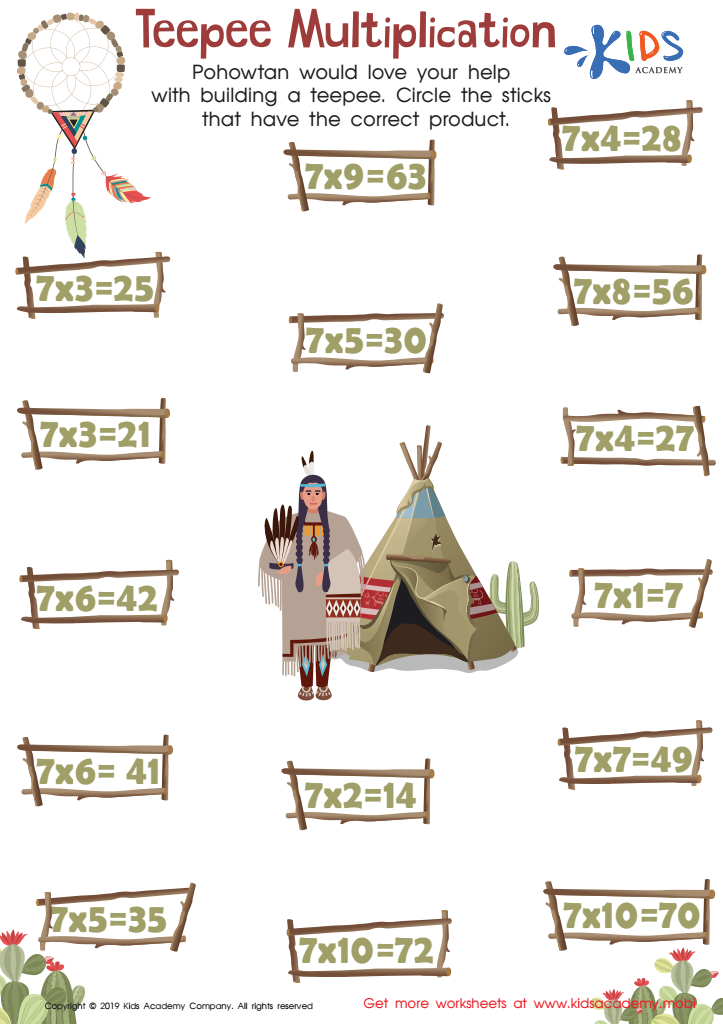

Teepee Multiplication Worksheet
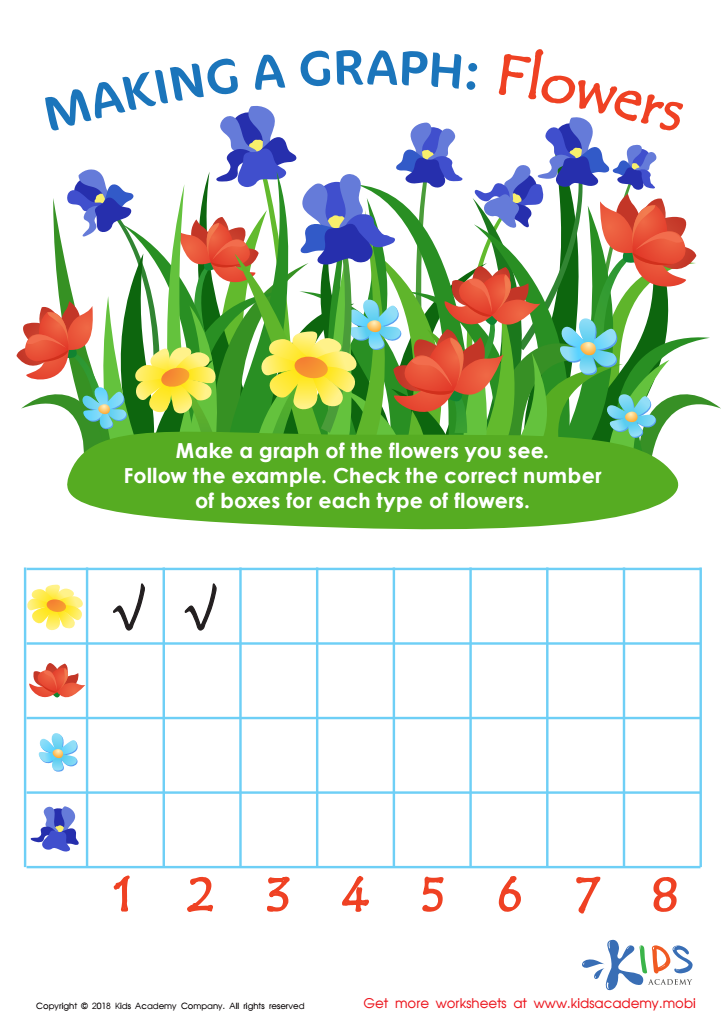

Making a Graph: Flowers Worksheet
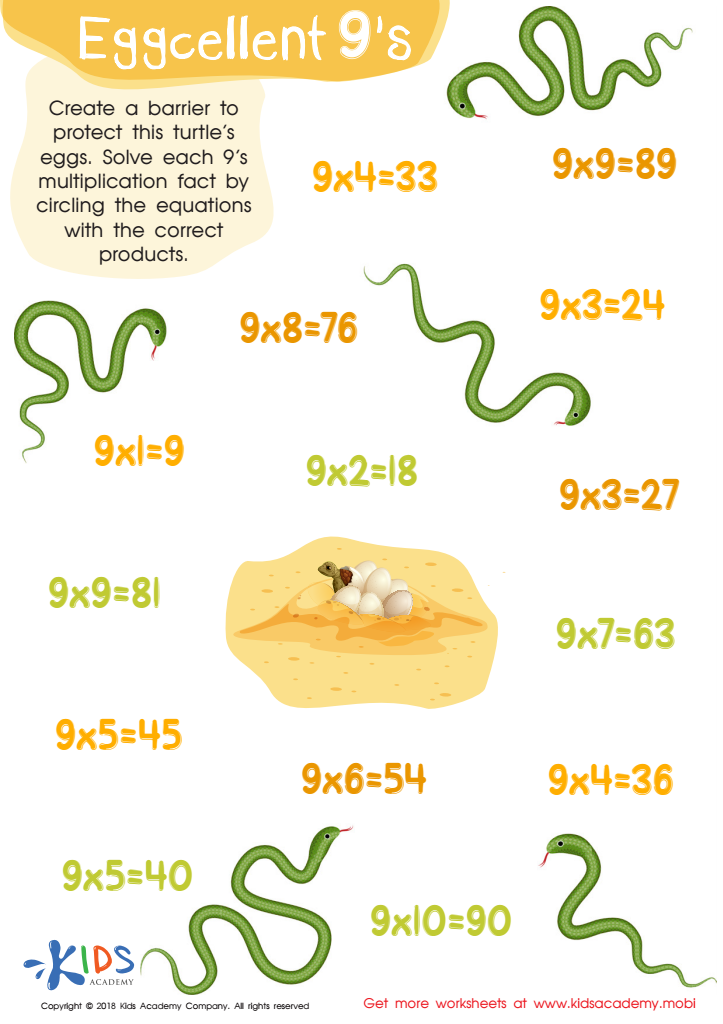

Eggcellent 9’s Worksheet
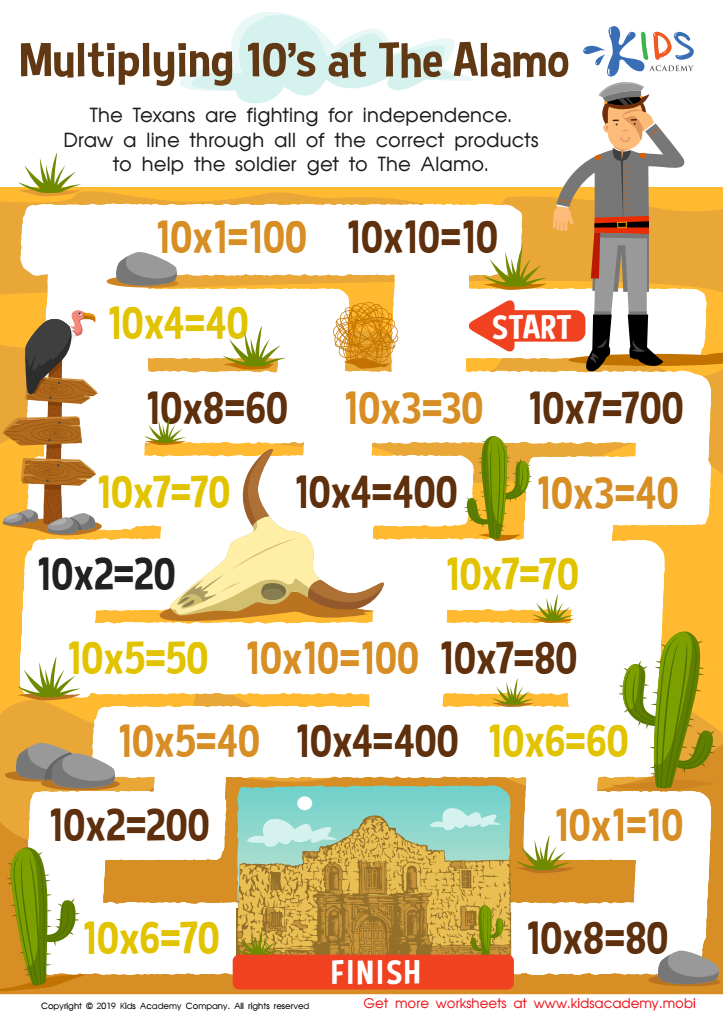

Multiplying 10’s at The Alamo Worksheet
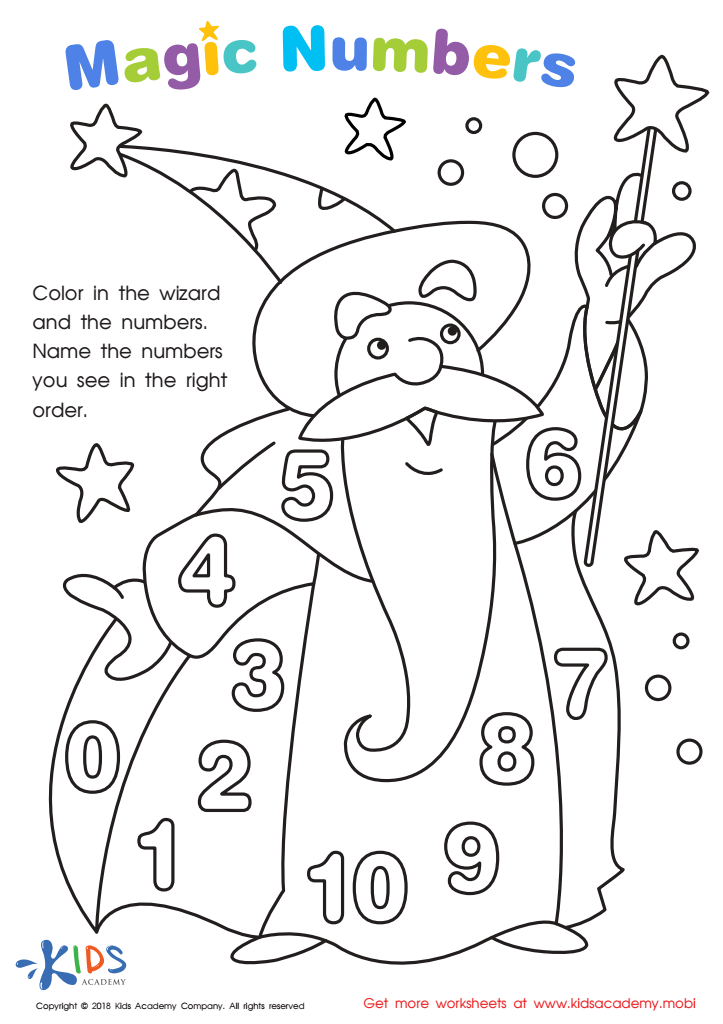

Magic Numbers Worksheet
Understanding patterns is foundational for cognitive development in young children, especially those aged 7-9. Parents and teachers should prioritize this area because it strengthens critical thinking, problem-solving, and logical reasoning skills. When children learn to recognize, predict, and create patterns, they develop an ability to identify relationships and sequences, which are fundamental in subjects like mathematics and reading. For instance, recognizing numerical patterns aids in grasping addition, multiplication, and even algebra later.
Moreover, understanding patterns enhances children's ability to make connections across various disciplines. In science, it helps them understand life cycles, weather patterns, and the order of operations. In writing, recognizing narrative structures or grammatical patterns supports literacy development. Patterns also play a pivotal role in daily problem-solving and decision-making, as children learn to predict outcomes based on previous experiences.
Additionally, engaging with patterns promotes curiosity and creative thinking. By challenging children aged 7-9 with complex patterns, parents and teachers can expand their cognitive abilities beyond basic memorization, encouraging a deep and intrinsic understanding of the world around them. Consequently, emphasizing pattern recognition in early education forms a foundational block for more advanced learning and critical thinking skills in later life.
 Assign to My Students
Assign to My Students




















